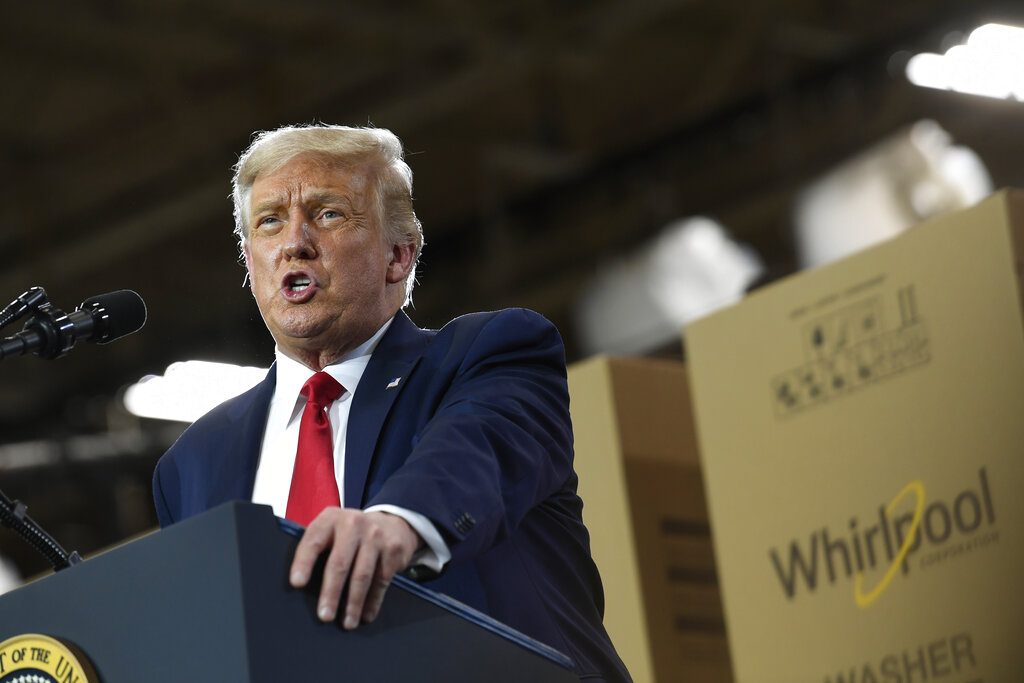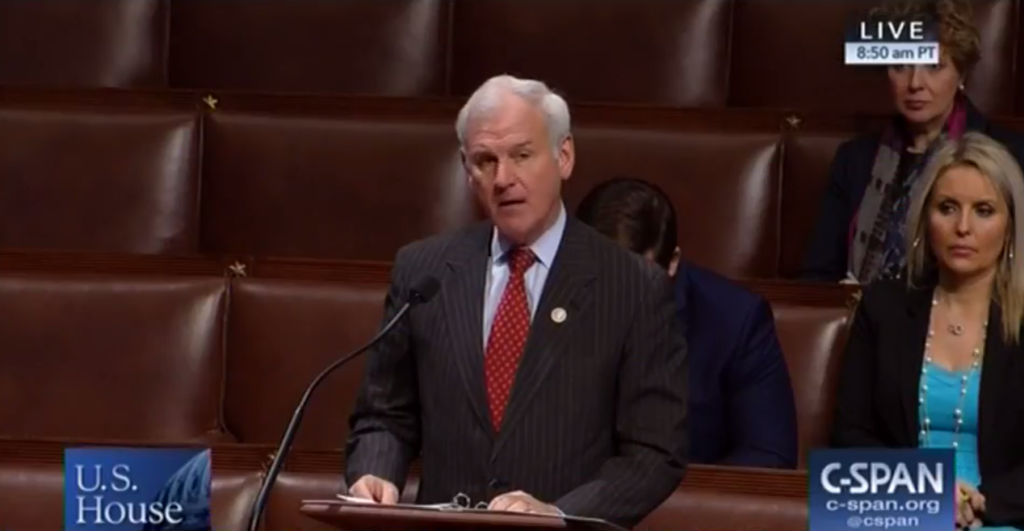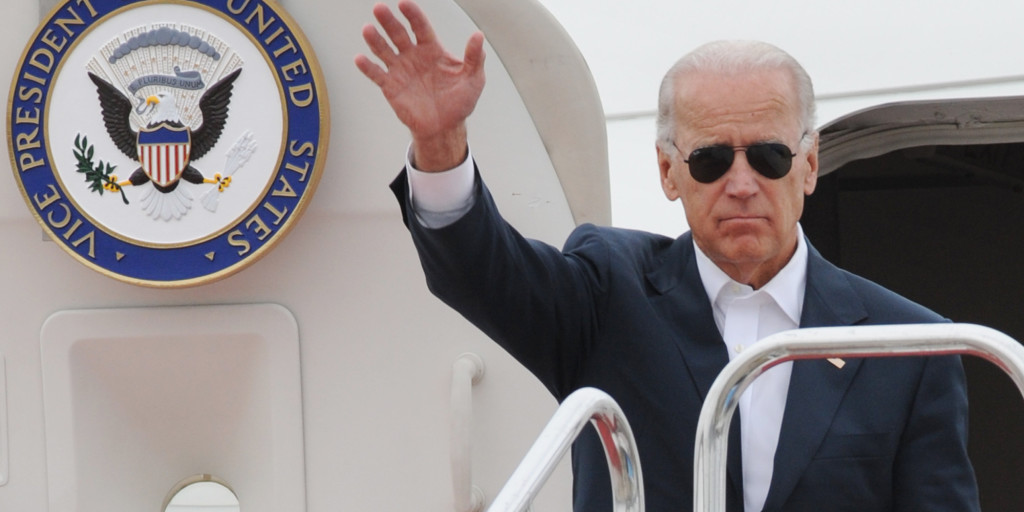Joe Biden opens overseas trip declaring ‘United States is back’

President Joe Biden opened the first overseas trip of his term Wednesday with a declaration that “the United States is back” as he seeks to reassert the nation on the world stage and steady European allies deeply shaken by his predecessor. Biden has set the stakes for his eight-day trip in sweeping terms, believing the West must publicly demonstrate it can compete economically with China as the world emerges from the coronavirus pandemic. It is an open repudiation of his predecessor, Donald Trump, who scorned alliances and withdrew from a global climate change agreement that Biden has since rejoined. The president’s first stop was a visit with U.S. troops and their families at Royal Air Force Mildenhall, where he laid out his mission for the trip. “We’re going to make it clear that the United States is back and democracies are standing together to tackle the toughest challenges and issues that matter the most to our future,” he said. “That we’re committed to leading with strength, defending our values, and delivering for our people.” The challenges awaiting Biden overseas were clear as the president, and the audience wore masks — a reminder of the pandemic that is still raging around much of the world even as its threat recedes within the United States. “We have to end COVID-19 not just at home — which we’re doing — but everywhere,” Biden said. Shortly before the president spoke, people briefed on the matter said the Biden administration had brokered an agreement with Pfizer to purchase 500 million COVID-19 vaccine doses to be donated to 92 lower-income countries and the African Union over the next year. National security adviser Jake Sullivan told reporters that Biden was committed to sharing vaccines because it was in the public health and strategic interests of the U.S. He added that Biden is aiming to show “that democracies are the countries that can best deliver solutions for people everywhere.” “As he said in his joint session (address), we were the ‘arsenal of democracy’ in World War II,” Sullivan said. “We’re going to be the ‘arsenal of vaccines’ over this next period to help end the pandemic.” Building toward his trip-ending summit with Russian President Vladimir Putin, Biden will aim to reassure European capitals that the United States can once again be counted on as a dependable partner to thwart Moscow’s aggression both on their eastern front and their internet battlefields. The trip will be far more about messaging than specific actions or deals. And the paramount priority for Biden is to convince the world that his Democratic administration is not just a fleeting deviation in the trajectory of an American foreign policy that many allies fear irrevocably drifted toward a more transactional outlook under Trump. “The trip, at its core, will advance the fundamental thrust of Joe Biden’s foreign policy,” Sullivan said, “to rally the world’s democracies to tackle the great challenges of our time.” Biden’s to-do list is ambitious. In their face-to-face sit-down in Geneva, Biden wants to privately pressure Putin to end myriad provocations, including cybersecurity attacks on American businesses by Russian-based hackers, the jailing of opposition leader Alexei Navalny and repeated overt and covert efforts by the Kremlin to interfere in U.S. elections. Biden is also looking to rally allies on their COVID-19 response and to urge them to coalesce around a strategy to check emerging economic and national security competitor China even as the U.S. expresses concern about Europe’s economic links to Moscow. Biden also wants to nudge outlying allies, including Australia, to make more aggressive commitments to the worldwide effort to curb global warming. The week-plus journey is a big moment for Biden, who traveled the world for decades as vice president and as chair of the Senate Foreign Relations Committee and has now stepped off Air Force One onto international soil as commander in chief. He will face world leaders still grappling with the virus and rattled by four years of Trump’s inward-looking foreign policy and moves that strained longtime alliances as the Republican former president made overtures to strongmen. The president first attends a summit of the Group of Seven leaders in the U.K. and then visits Brussels for a NATO summit and a meeting with the heads of the European Union. The trip comes at a moment when Europeans have diminished expectations for what they can expect of U.S. leadership on the foreign stage. Central and Eastern Europeans are desperately hoping to bind the U.S. more tightly to their security. Germany is looking to see the U.S. troop presence maintained there, so it doesn’t need to build up its own. France, meanwhile, has taken the tack that the U.S. can’t be trusted as it once was and that the European Union must pursue greater strategic autonomy going forward. “I think the concern is real that the Trumpian tendencies in the U.S. could return full bore in the midterms or in the next presidential election,” said Alexander Vershbow, a former U.S. diplomat and once deputy secretary general of NATO. The sequencing of the trip is deliberate: Biden consulting with Western European allies for much of a week as a show of unity before his summit with Putin. He holds a sitdown Thursday with British Prime Minister Boris Johnson a day ahead of the G-7 summit to be held above the craggy cliffs of Cornwall overlooking the Atlantic Ocean. The most tactile of politicians, Biden has grown frustrated by the diplomacy-via-Zoom dynamics of the pandemic and has relished the ability to again have face-to-face meetings that allow him to size up and connect with world leaders. While Biden himself is a veteran statesman, many of the world leaders he will see in England, including Johnson and French President Emmanuel Macron, took office after Biden left the vice presidency. Another, Germany’s Angela Merkel, will leave office later this year. There are several potential areas of tension. On climate change, the U.S. is aiming to regain its credibility after Trump pulled the country back from the fight against global warming. Biden could also feel pressure on
Donald Trump — ‘No Mr. Nice Guy’ — shows softer side to win voters

Competing depictions of the president come after the Democrats spent last week showcasing the compassion of Joe Biden.
Bradley Byrne: How do you solve a problem like Syria?

Recent developments in Syria highlight the need for the United States to revisit its broader Middle Eastern policy. Early last week, I joined a small meeting of House Republicans for an update on Syria from Secretary of Defense Mark Esper where he discussed a phone call from President Recep Tayyip Erdogan of Turkey to President Donald Trump. During that call, Erdogan notified President Trump that after years of waiting at the Syrian border, Turkish troops would finally cross over. He assured that Turkey was not coming after our troops but targeting certain Kurdish factions they consider terrorists. He gave President Trump 48 hours to relocate the two dozen or so American troops stationed on the border. President Trump was faced with a difficult decision. Ultimately, he decided to remove American servicemembers from harm’s way to prevent a full-blown conflict with Turkey. Turkey’s incursion into Syria is wrong and very troubling. Erdogan should never treat our President and our country the way he did on the phone call. There will be serious consequences for his behavior. I support seeking methods of leverage with Turkey that do not endanger our troops. After President Trump proposed harsh economic sanctions, the administration negotiated a cease fire with Turkey. The cease fire has been shaky at best, but it probably prevented many more deaths in the region. This is happening in the context of a greater strategic problem in the Middle East. For at least a decade, we’ve lacked a well-defined mission. What are our interests in the Middle East? What do we do to pursue and protect those interests? Since coming to Congress and serving on the House Armed Services Committee, I have not seen a strategic, conventional interest for the U.S. in Syria, other than destroying the ISIS caliphate. To be sure, Kurdish forces were the largest part of the successful campaign against the caliphate, and we need to stand by them as best we can under these challenging circumstances. But Syria is a failed state. It is bewildering the number of groups in some form of combat. With so many factions, it is often difficult to know who the good guys are. Problems between the Turks and Kurds will persist for generations, but this dispute is one of many combustible problems in the Middle East today. Just weeks ago, Iran attacked our Saudi Arabian ally. We need to work with our allies to determine our strategic goals and how to reach them. We should continue providing assistance to our allies, including the Kurds, but progress requires buy-in from all of our allies in the region. Turkey, as a NATO member, does currently play a role in supporting our alliance goals. Turkey is the home of an important U.S. air base and many other critical NATO assets including U.S. nuclear weapons. However, Turkey’s actions cast serious doubts on whether they will honor their NATO commitments going forward, and frank discussions between Trump, Erdogan and other NATO leaders are needed. We must be tough with Turkey. I still believe strong sanctions to weaken and punish Turkey are needed, and I signed on as an original cosponsor to Liz Cheney’s resolution to impose very tough sanctions. After the Turkish incursion, I was disappointed that the House hastily put forward a resolution condemning President Trump’s actions without knowing the full facts. The very next day, I received a classified briefing shedding more light on his tough decision. I think everyone in Congress should have access to these classified briefings to gain a fuller understanding of what happened. Instead of attacking the President, we need to have sincere bipartisan conversations and propose concrete solutions for Syria and the Middle East. On critical national security issues, we must put America first.
Should I have my shotgun by my side on Election Day?

I’ve only owned one gun in my life. It’s a Remington 870 Breacher, so named because it’s partially designed for forcing open a closed and locked door. It has a carbon stock and a camouflage finish. The handful of people who have seen the gun say it’s a beautiful weapon. Then again, not many people have seen it because I’ve only brought it out of its case once and that was to learn how to use it at a local range. Otherwise, it’s stored away with the extra coolers, holiday decorations, and paint cans. We live at the end of a cul-de-sac in an upscale neighborhood. Our community is gated and patrolled by a private security force. We are blessed that crime is something of an abstract concept read about in the newspaper. My wife and I have a young child. We decided a while ago we did not want to keep a gun in the house. The garage is close enough. But with three weeks to go before Election Day, I have to wonder: should I have my shotgun by my side when the results are announced? According to The Boston Globe, some supporters of Donald J. Trump are openly talking of armed revolt if the presidential race does not go their way. “This is a result of Trump actively stoking fears that a core tenet of American democracy is in peril: that you can trust what happens at the ballot box,” the story said. On Election Day, Trump supporters say “they plan to go to their local precincts to look for illegal immigrants who may attempt to vote. They are worried Democrats will load up buses of minorities and take them to vote several times in different areas of the city. They’ve heard rumors that boxes of Clinton votes are already waiting somewhere.” “And if Trump doesn’t win, some are even openly talking about violent rebellion and assassination, as fantastical and unhinged as that may seem,” it continued. It’s far from clear where this violence will be directed — but isn’t that part of why the situation is so worrisome? Instead of protecting my family from a home invasion or an apocalyptical advance of a Zombie army, I face the prospect of using my shotgun to ward off gangs of electoral sore losers. The trouble is, something tells me Trump’s supporters are better armed and equipped than those who support Hillary Clinton. And, yet, maybe America will take a page from, of all places, Turkey. It’s there that the better-armed military attempted to oust the popularly supported, albeit increasingly autocratic, President Recep Tayyip Erdoğan. But the coup d’état was put down after forces loyal to the state defeated the plotters. If Trump’s supporters do grab their pitchforks and AR-15s and take to the streets, it will be the police and National Guard — two institutions traditionally identified as conservative — that will have to tamp down the Trumpkins. Trump’s campaign distanced itself from the radical viewpoints espoused in the Globe article. “We reject violence in any form and will not allow it to be a part of our campaign,” the campaign said in a statement. Of course, the Trump campaign has said a lot of things it didn’t mean. That’s why I’ll be digging for my shotgun case in the days after Halloween. Instead of the doomsday preppers, it’s time to fear the democracy preppers.
Joe Biden to meet with leaders in Turkey mid-January

Vice President Joe Biden will travel to Turkey next month amid the ongoing fight against the Islamic State group. Biden is adding a stop in Turkey to his previously announced trip to Davos, Switzerland, for the World Economic Forum the week of Jan. 17. The White House says Biden will meet with Turkish President Recep Tayyip Erdogan (REH’-jehp TY’-ihp UR’-doh-wahn) and Prime Minister Ahmet Davutoglu (AH’-meht dah-voot-OH’-loo). The U.S. is pressing Turkey to do more to fight IS and tighten its border with Syria. Turkey has been a target of IS attacks, and on Wednesday detained two suspected IS militants believed to be planning suicide attacks. Biden is also working to tamp down a spat between Turkey and Iraq over Turkish troops staged at a training camp in northern Iraq. The White House says Biden will also visit Guatemala on Jan. 14 to lead the U.S. delegation to incoming President Jimmy Morales‘ inauguration. Republished with permission of the Associated Press.


